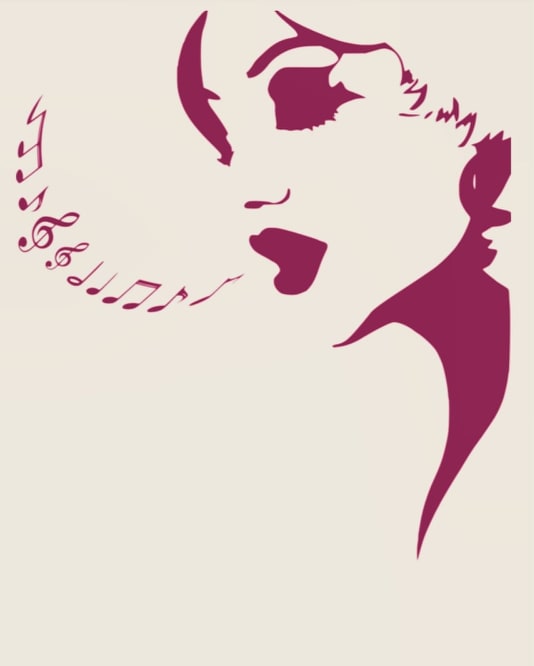If you need just one rule for how to maximize your wine experience, here´s a suggestion: “Never play polkas with anything, unless you really like White Zinfandel”. This advice is stated by Californian winemaker Clark Smith who has been experimenting with the effects on music on wine for some years now. Smith is convinced that music can alter the flavor of wine and drastically change the drinking experience. In Smith’s project Winesmith he defines wine as “liquid music” and the aim of his winemaking is offering “an opera in the bottle”.
Many wine enthusiasts are also passionate music lovers. Just like wine, music is physical, emotional, it reaches beyond logic and has the ability to “touch our soul”. Like a melody can send us instantly back to a distant memory, taste and smell can have the same effect. Wine is also intoxicating, just like music can be as its best. Just like wine, music is not necessary for our physical survival but to many of us, for our spiritual. Music and wine are both food for the soul. Music, compared to other artforms such as painting, also has a temporal aspect to it, an evolution in time. A live performed piece of music is also unpredictable and dynamic, just like a bottle of wine in contact with the air. Just as wine can be contemplative – “vino da meditazione” in Italian; the sort of wine that you slowly sip on and enjoy for the sake of itself and not necessary need to match with food – also music can be either an end in itself or just well suited for a certain context such as a dinner party.
So if a wine and a piece of music with the same “mood” are combined, might the experience get even stronger? Smith believes so. He claims that wine tasting activates the same logical processing areas of the brain as listening to music. To Smith wines can either can taste smoother, if complemented by the right music, or more astringent and harch if mismatched. “The more we explore it, the more mysterious wine seems. It appears to provide a mirror to our feelings,” says Smith. A central point for Smith is the concept of sweet spots in music – a specific level of of alcohol which makes a wine taste balanced and harmonious, not different from the way musical tuning behaves. In his project WineSmith he spent months with tasting panels trying out 150 different wines and 250 different songs with the aim of finding find harmonies and discordances between matchings. And the results were coherent: most tasters in the experiment for instance agreed that Pinot Noir was well matched with Mozart’s “Eine Kleine Nachtmusik”, whereas a Cabernet Sauvignon was not a good pairing to the same tune. According to Smith a Cabernet Sauvignon needs a “darker”, more Dionysian music, such as Metallica. He further states that:“Red wines need either minor key or they need music that has negative emotion. They don’t like happy music. With expensive reds, don’t play music that makes you giggle. Pinots like sexy music. Cabernets like angry music. It’s very hard to find a piece of music that’s good for both Pinot and Cabernet.” More of Smiths tips for pairings and hands-on advice on how to proceed are to be found here.
Although Smith takes the topic seriously, his approach is rather experiential and playful than scientific. But there is also an increasing volume of research regarding how music affects our sensorial experience of wine. In several studies music has been shown to influence the perceived acidity, sweetness, fruitiness, astringency, and even length of wine, through synaesthesia – the merging of senses that aren’t normally connected. If you feel like digging into the more scientific aspect of the topic, have a look at the paper written in 2015 by Charles Spence and Qian Wang. The authors focus on how the emotional state that music causes can alter the tasting experience. They also claim that the volume of the music influences: if it gets too loud, the perception of sweetness is lower and the perception umami is enhanced. A topic still to be investigated is the role of individual and cultural differences: would for instance a professional musician respond differently to the matchings than another person? This could be fascinating area to dig into for a wine and music nerd. Personally, I think I will start experimenting on a home basis with the pairing of a Cab and Art Peppers Playboy Jazz: Love Songs After Dark, as kindly suggested by Smith.

Postmodern winemaking (2011). Wine and music. Retrieved at: http://www.postmodernwinemaking.com/wine-and-music
Spence, C & Wang, Q (2015). Wine and music (II): can you taste the music? Modulating the experience of wine through music and sound. Retrieved at: https://flavourjournal.biomedcentral.com/articles/10.1186/s13411-015-0043-z

I’ve seen people pair wine with music, but it’s always seemed highly subjective. I’ve never really reflected on the similarities between the two either, and certainly didn’t know there’s been research into how music effects our experience of wine. Very inspiring, thank you for the links! I imagine that as with music, all things that involve the engagement of our senses would influence our experience of wine, so the possibilities are endless!
LikeLike
Thank you! I also found the link a bit vague until I started reading about the subject. Quite fascinating! 🙂
LikeLiked by 1 person